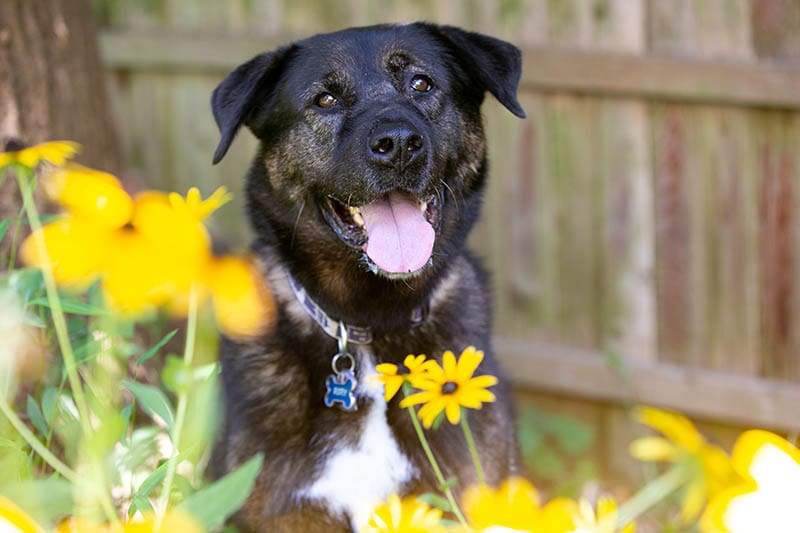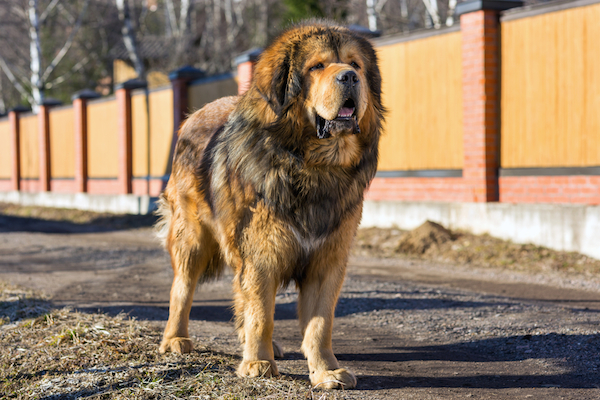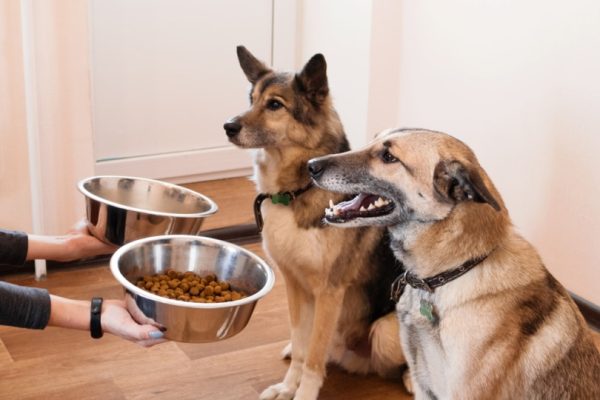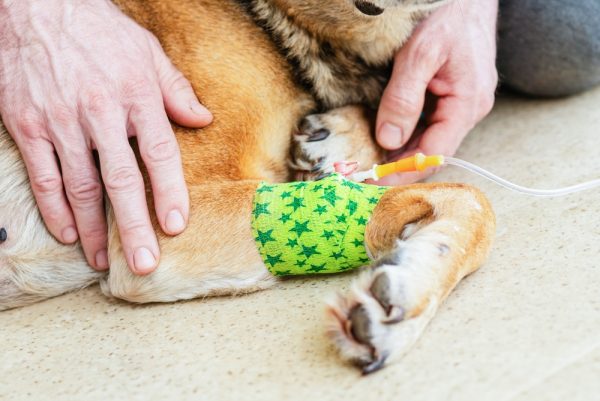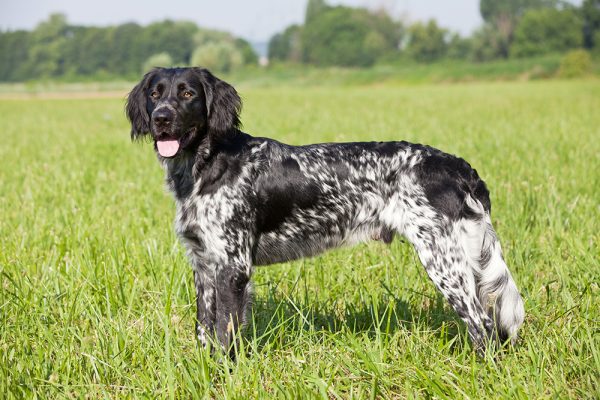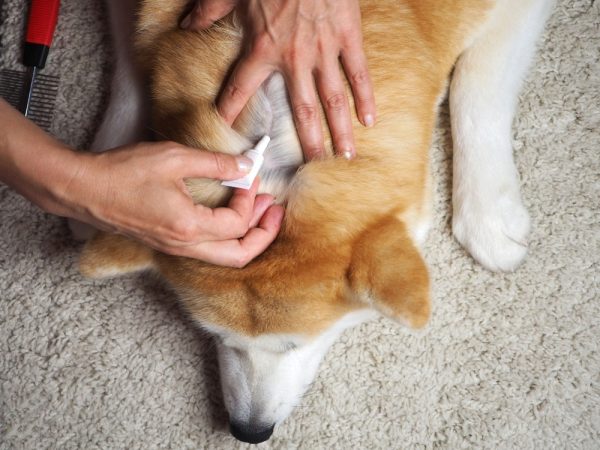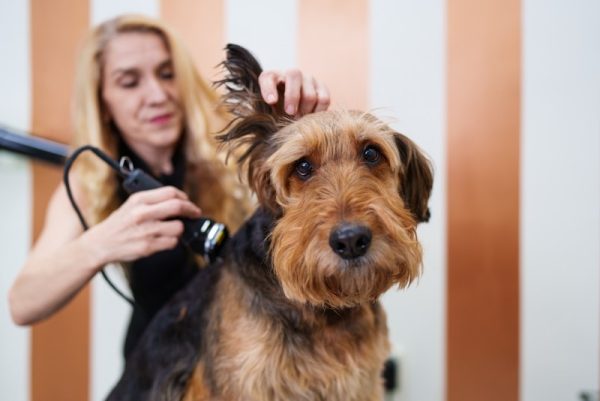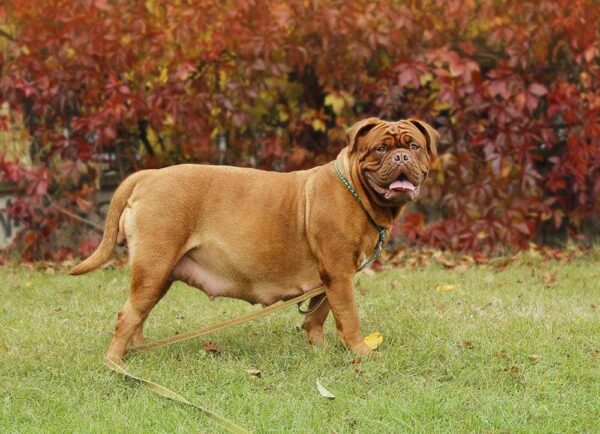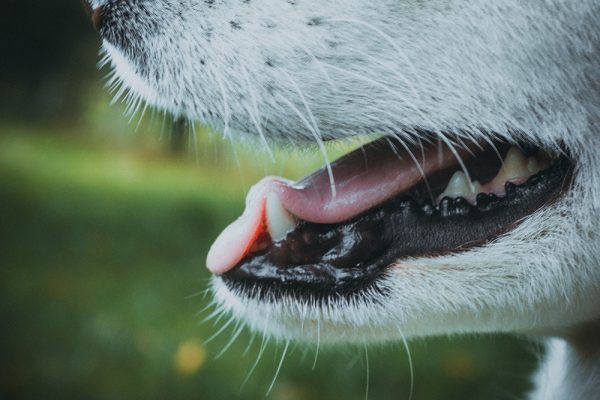In this article
View 8 More +If you’re searching for the perfect guard dog, the Akita-Rottweiler has the genetics to be just what you’re looking for. However, they need the right combination of socialization, training, and an experienced owner to ensure they thrive.
Keep reading to learn what the Akita-Rottweiler has to offer and whether you can give them the home they need!
Breed Overview
Height:
22–28 inches
Weight:
70–135 pounds
Lifespan:
9–14 years
Colors:
Black and tan, brindle, fawn
Suitable for:
Experienced, active dog owners, families with older children, may be best as an only pet
Temperament:
Loyal, protective, powerful, territorial, intelligent, stubborn, playful, and affectionate with family
The Akita-Rottweiler mix is a newer hybrid, which combines a pair of strong, powerful breeds known for their protective nature. Akitas originated in Japan, where they served as hunters and guardians for royalty. Rottweilers were developed in Germany as herding and protection dogs.
Together, these breeds form a mix known for their loyalty and devotion to family. However, the Akita-Rottweiler mix isn’t the best fit for all owners, so it’s vital to research the dog carefully if you’re interested. Get started by checking out our breed profile, including what you can expect when owning the Akita-Rottweiler mix.
Akita-Rottweiler Mix Characteristics

Akita-Rottweiler Mix Puppies
Akita-Rottweiler mix puppies may be adorable but don’t be fooled: they will grow up fast and get big! Because they’re one of the newer designer dogs, you’ll likely need to buy a puppy from a breeder. However, they may be difficult to find in your area.
Even though the Akita-Rottweiler mix isn’t common, you may be able to find one for adoption. For example, unprepared owners may surrender their puppies when they get bigger than expected.
No matter where you get your Akita-Rottweiler mix puppy from, early socialization is vital. Both parent breeds are naturally protective and suspicious of strangers, especially Akitas. Combined with their size and strength, a poorly socialized adult Akita-Rottweiler mix could pose a problem, particularly in the hands of inexperienced owners.
To ensure your dog remains calm and reacts appropriately in new situations, Akita-Rottweiler puppies should be socialized early and often. Establish routines early and expose your puppy to other pets, kids, and adults frequently.
Start puppy training early as well. Akita-Rottweiler mixes frequently weigh over 100 pounds when fully grown, and it’s much easier to teach them how to behave properly when they’re still young. Large and giant breed puppies have specific nutritional requirements to ensure they maintain the correct growth rate. Talk to your veterinarian about choosing the right diet.
While your puppy needs exercise, you’ll want to be careful not to overstress their developing joints and muscles by doing any intense activities until they’re fully grown.
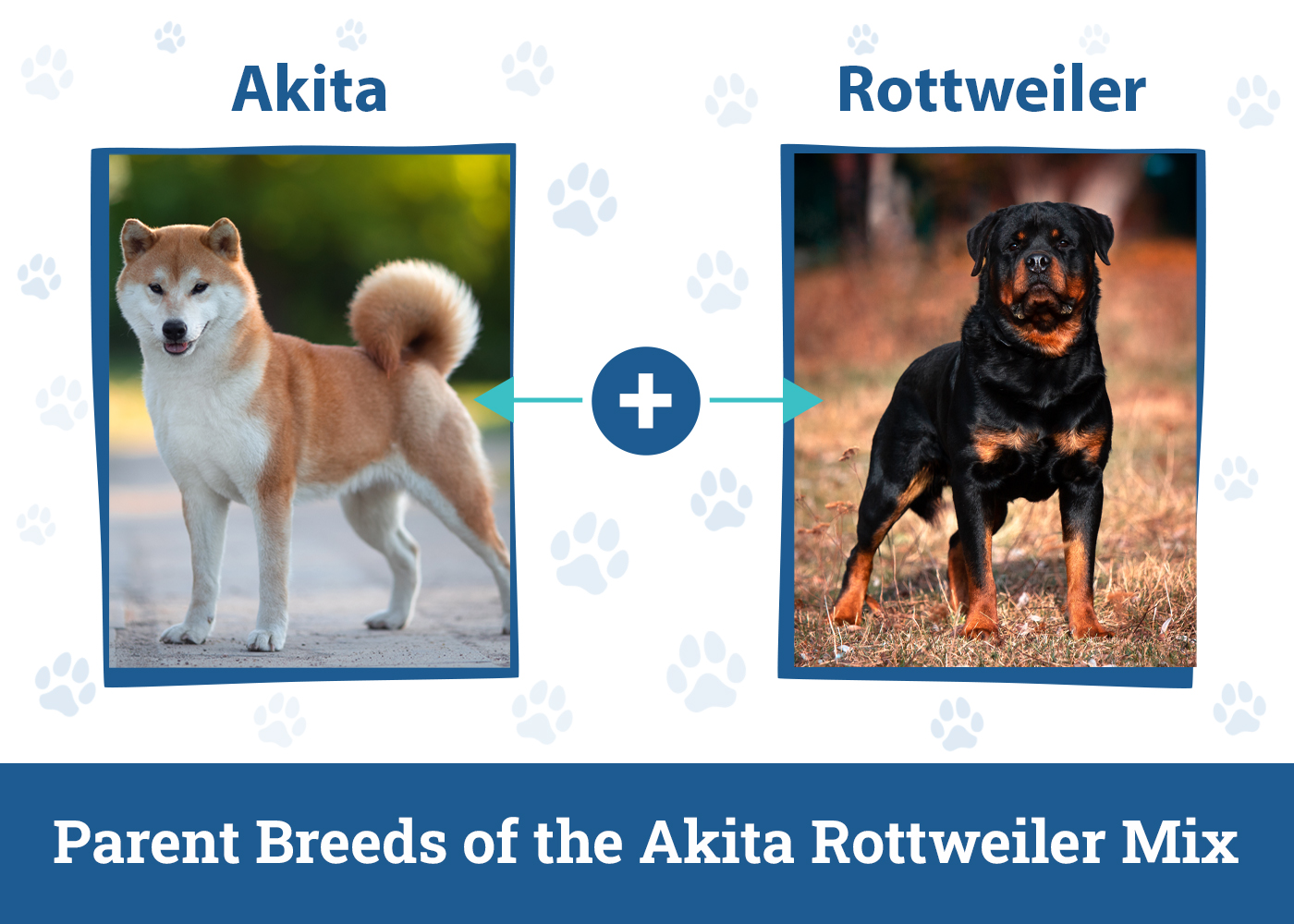

Temperament & Intelligence of the Akita-Rottweiler Mix
The temperament of Akita Rottweiler mixes can be challenging to predict, but the parents are friendly to their owners and wary of strangers. Rottweilers and Akitas have working dog heritages and are eager to please their owners, but they both require obedience training to become well-behaved pets.
Their puppies are likely to be incredibly intelligent since the Akita and Rottweiler are smart dogs, but they need an owner who’s experienced with large dogs.
Are These Dogs Good for Families? 🧑🧑🧒
Akitas and Rottweilers share several traits in common, but the differences make the question of whether they are good for families tricky to answer. In general, these dogs do okay with older children when properly socialized.
They are not recommended for families with younger kids, such as toddlers. In addition, Akitas do not generally do well with strange children. If the Akita-Rottweiler mix inherits this tendency, they are not a good choice for social families who frequently welcome other kids over for play dates.
As mentioned earlier, properly socializing the Akita-Rottweiler mix will help them learn to interact safely with children. You have to supervise all interactions between dogs and kids, even with well-socialized pets. Akita-Rottweiler mixes are typically affectionate with the people they know well and can make loving family pets in the right hands.
They don’t enjoy being left alone, so busy families should consider their schedules before adopting an Akita-Rottweiler mix.
Does This Breed Get Along with Other Pets?
Akitas don’t usually get along with other pets, while Rottweilers can generally tolerate other dogs with proper socialization and supervision. Again, it’s tough to predict how your Akita-Rottweiler will get along with other pets, given these differences. Because of their size, they may accidentally hurt small dogs even when playing.
They always do well with cats and may chase them, and because of their high prey drive, they shouldn’t be kept with small animals or exotic pets. Even if the dogs don’t try to harm the small animals, the stress of having a predator so near can be dangerous for exotic pets.

Things to Know When Owning an Akita-Rottweiler Mix:
Food & Diet Requirements🦴
Akita-Rottweiler mixes eat a lot of food because of their size, and as adults, they typically need around 4 to 6 cups of dry food daily, divided into two meals. It’s best to serve a nutritionally balanced food formulated for your dog’s appropriate stage of life.
Ask your veterinarian for help calculating how many calories your dog should eat to avoid overfeeding. Overweight Akita-Rottweiler mixes will put extra stress on their joints and may also be prone to other health problems.
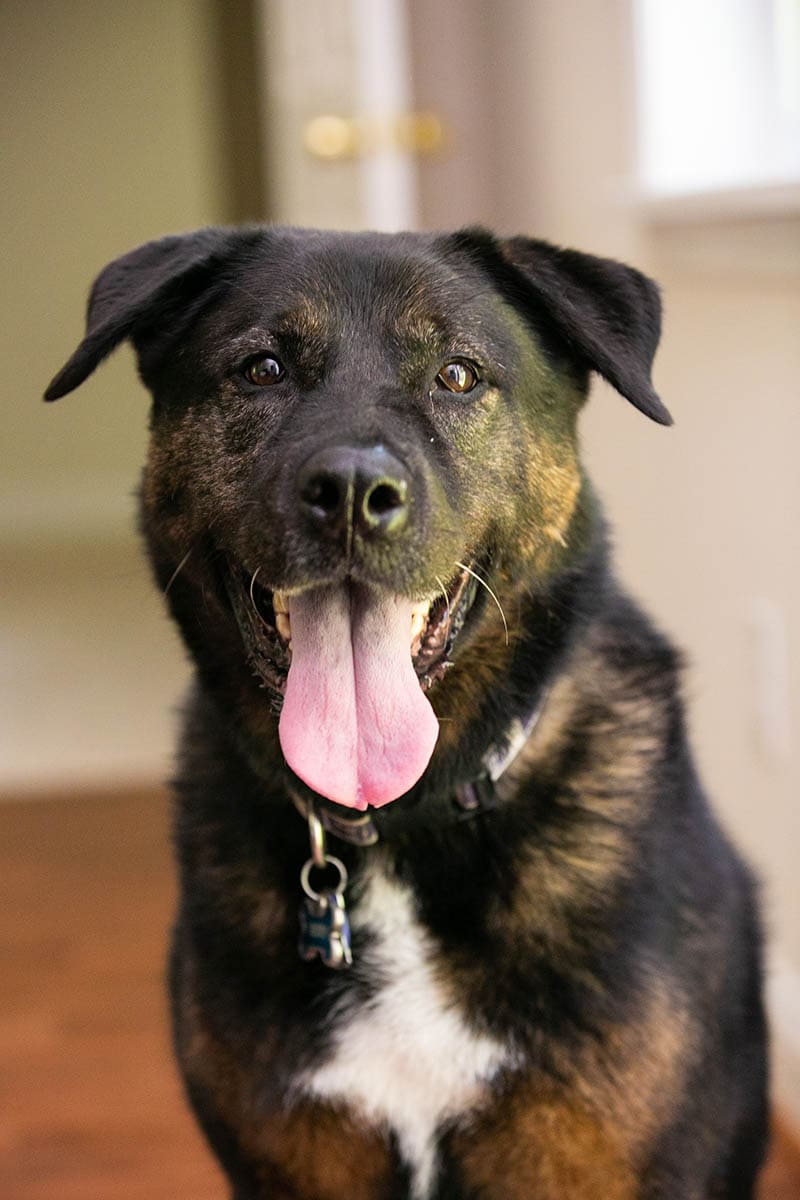
Exercise🐕
Akita-Rottweiler mixes need daily exercise to stay healthy and mentally engaged. Plan on about 90 minutes of moderate activity each day, such as walking, jogging, hiking, or swimming. Avoid off-leash activities unless they take place in a fenced-in location.
If your dog tolerates other canines, they may enjoy participating in organized activities such as tracking or cart-pulling. Despite their exercise needs, they can usually live in smaller spaces if you can provide enough daily exercise.
Training🎾
Training an Akita-Rottweiler mix can be unpredictable because the two parent breeds differ in how easily they learn. Rottweilers are smart and typically eager to please. While they can be stubborn, they generally respond well to firm but positive training methods.
Akitas, on the other hand, are intelligent and loyal but notoriously independent. Early and consistent training is vital but may be frustrating at times. Because of their size, strength, and potential training difficulties, Akita-Rottweiler mixes are best suited for experienced owners. Training and socialization is a lifelong task for them, but the reward can be a calm, well-mannered, protective pet who is a wonderful companion.
Grooming ✂️
The Akita-Rottweiler is not a low-shedding dog. Both parent breeds have a double coat, but the Akita’s fur is especially thick because of the cold conditions found in their country of origin. Your dog will experience seasonal heavy shedding and will need daily brushing.
However, you may be able to get away with brushing only weekly if your dog inherits a shorter Rottweiler coat. You’ll also need to keep your dog’s nails trimmed and clean their ears as needed.
An Akita-Rottweiler will also need regular preventative dental care since Akitas are prone to periodontal disease. Brushing their teeth is typically the most effective, but you can also try dental chews or water additives. Include grooming tasks in the early training routine for your puppy to make them easier to manage when they grow larger and stronger.
- You might want to check this out: 11 Best Dog Wipes: Reviews & Top Picks
Health and Conditions 🏥
Akita-Rottweiler mixes can inherit any genetic condition common in either parent. As you search for a breeder, look for one who performs all recommended health screenings and can provide a complete medical history for a puppy’s family tree, especially the Rottweiler side. Akitas and Rottweilers are both prone to joint conditions like hip dysplasia.
Cancer, such as a bone tumor called osteosarcoma, is common in Rottweilers. They can inherit a genetic mutation that causes Juvenile Laryngeal Paralysis and Polyneuropathy (JLPP) and are also prone to inherited heart conditions.
Akitas and Rottweilers are prone to inherited eye conditions and should be certified by a veterinary ophthalmologist before breeding.
- Skin conditions
- Glaucoma
- Dental disease
- Hip dysplasia
- Osteosarcoma
- Juvenile Laryngeal Paralysis and Polyneuropathy (JLPP)
- Heart conditions

Male vs Female
Male Akita-Rottweiler mixes are generally taller and heavier than their female counterparts. They may also be naturally more dominant and aggressive, especially when they aren’t neutered. Females will go into heat about twice a year and should be kept away from any male dogs during that time to prevent accidental breeding.
If you want to spay or neuter your Akita-Rottweiler mix, talk to your veterinarian to determine the best age to perform the procedure. Recent research suggests there are health benefits to waiting longer to spay or neuter some breeds.

3 Little-Known Facts About the Akita-Rottweiler Mix
1. It’s a New Breed with Ancient Roots.
Rottweilers are thought to be descended from guard dogs first developed during the Roman Empire. On the other side of the world, Akitas were first bred in early 17th-century northern Japan. Deliberately mixing these two dogs may be a recent development, but the foundation breeds have existed for centuries.
2. They Partly Owe Their Existence to Helen Keller.
Helen Keller is believed to have brought the first Akita to the United States after visiting Japan in 1937. American troops returning from World War II brought more Akitas with them, and the breed became established in the U.S. after that. Akita-Rottweiler mixes came later, but we don’t know exactly when they were first bred.
3. Their Loyalty Is the Stuff of Legend and Hollywood.
A famous Akita named Hachiko from the 1920s once waited 9 years at a Japanese train station for his owner (who had died suddenly) to come home. His story was later made into a 2009 movie starring Richard Gere called Hachi: A Dog’s Tale.

Final Thoughts
The Akita-Rottweiler mix is a big, powerful dog that shows great loyalty and love to their families. However, their natural suspicion of strangers and protective instincts mean they need careful training and socialization to prevent bad behavior or even aggression.
Not all breeds are a good fit for every living situation, especially this one. Families with other pets and young children should think twice before choosing an Akita-Rottweiler. Experienced owners with the time and patience to give their dogs the training and exercise they need are the best fit.
See Also:
Featured Image Credit: hannahsnyder, Shutterstock
